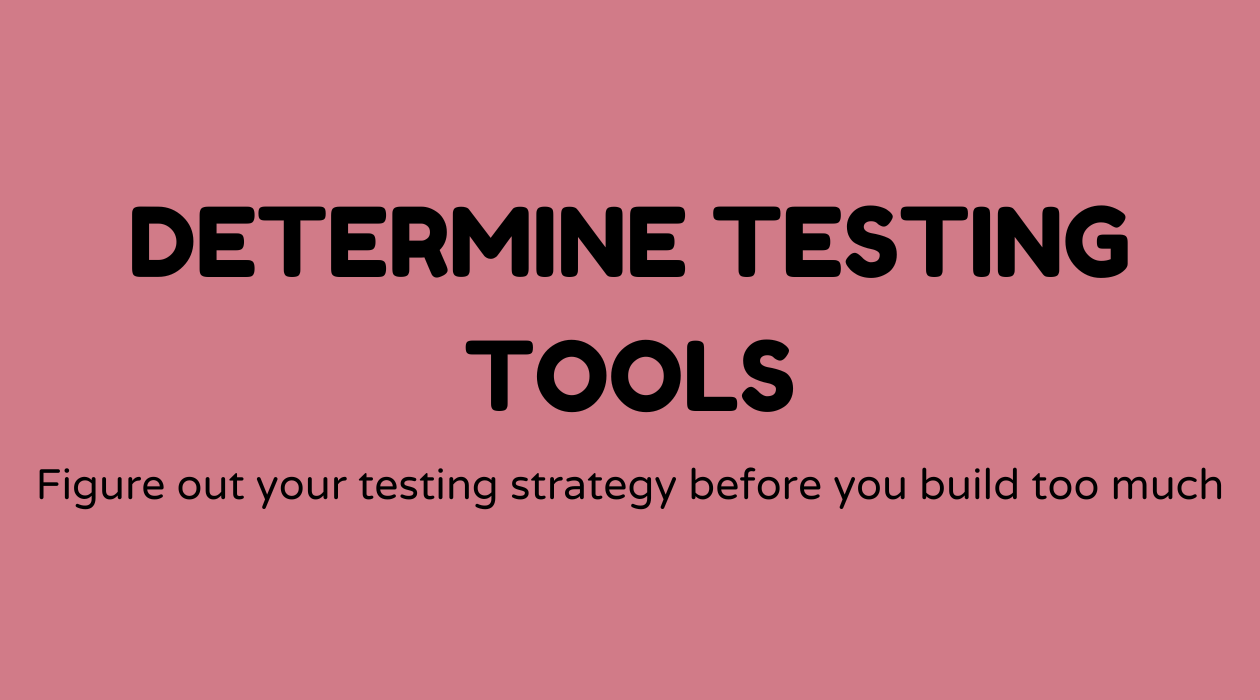Determine testing tools and frameworks

Overview of Selecting Testing Tools and Frameworks
In today’s fast-evolving development environment, selecting the right testing tools and frameworks is vital for ensuring software quality and efficiency. The appropriate setup can reduce development time, enhance code quality, and help identify bugs before they reach production. With numerous options available, figuring out which tools and frameworks are best suited for your project can seem overwhelming. This guide will help you through the details of making a knowledgeable choice.
Why Selecting Testing Tools and Frameworks is Important
Choosing the right testing tools and frameworks is a strategic decision that impacts various aspects, including team collaboration and product functionality. Suitable tools help maintain code integrity, increase team morale by minimizing repetitive tasks, and ultimately improve user satisfaction. Conversely, a poor selection can lead to ineffective testing procedures, missed deadlines, and potentially unreliable software releases.
What are Testing Tools and Frameworks?
Testing tools and frameworks are resources and structures employed to automate, manage, and support software testing processes. These tools can be open-source or commercial and are designed to conduct various types of testing, such as unit testing, integration testing, and system testing. Frameworks provide an organized foundation featuring reusable code, scripts, and configurations to streamline the testing procedure. Some widely-used testing frameworks include Selenium for web applications and JUnit for Java applications.
How Do You Choose Testing Tools and Frameworks?
-
Assess Your Project Requirements:
Review the scope, scale, and type of your project. Is it web-based, mobile, or desktop? Each platform has unique requirements and may necessitate different tools. -
Consider Current Infrastructure:
Examine your existing technology stack. Some tools may integrate smoothly with your current setup, while others might require considerable adjustments. -
Research Available Tools:
Checking community forums, software review sites, and official documentation can provide insights into the advantages and disadvantages of each tool. External resources, such as Guru99, offer thorough guides and comparisons. -
Evaluate Based on Key Criteria:
- Ease of Use: Can your team adopt the tool without difficulty?
- Compatibility: Does it fit within your current tech stack?
- Scalability: Will it grow alongside your project?
- Cost: Does it align with your budget?
-
Testing and Iteration:
Before full implementation, try a few shortlisted tools with a small group. Use trial periods to investigate functionalities and gather feedback. -
Make Informed Decisions:
Collect feedback and performance data. Tools like Capterra provide user reviews that can be invaluable during the selection process.
Examples of Testing Tools and Frameworks
- Selenium: An open-source tool best suited for web applications, allowing for cross-browser testing.
- JIRA/Test Management for Jira (TM4J): Ideal for agile projects, combining task management with testing functionalities.
- Jenkins: A widely-used tool for continuous integration and automated deployment.
- Postman: Popular for API testing, allowing simulation, testing, and documentation of API endpoints.
- JUnit: Perfect for Java applications, offering a simple framework to write repeatable tests.
FAQs
Why is it important to choose the right testing tool?
The right tool increases the efficiency of your testing process, reduces time spent on debugging, and ensures software reliability.
What should be prioritized when selecting testing frameworks?
Consider integration ease, learning curve, community support, scalability, and cost.
Can one project utilize multiple testing tools?
Yes, employing a combination of tools can provide comprehensive coverage and meet various testing needs.
Do open-source testing tools suffice for enterprise projects?
Many open-source tools, such as Selenium, are highly effective for enterprise use. However, consider support and maintenance when making your choice.
What role does a testing framework play in agile development?
Frameworks enable test automation, continuous integration, and faster iterations, aligning well with agile methodologies.
Are there testing tools specific to mobile applications?
Yes, tools like Appium and Espresso are designed specifically for mobile application testing.



